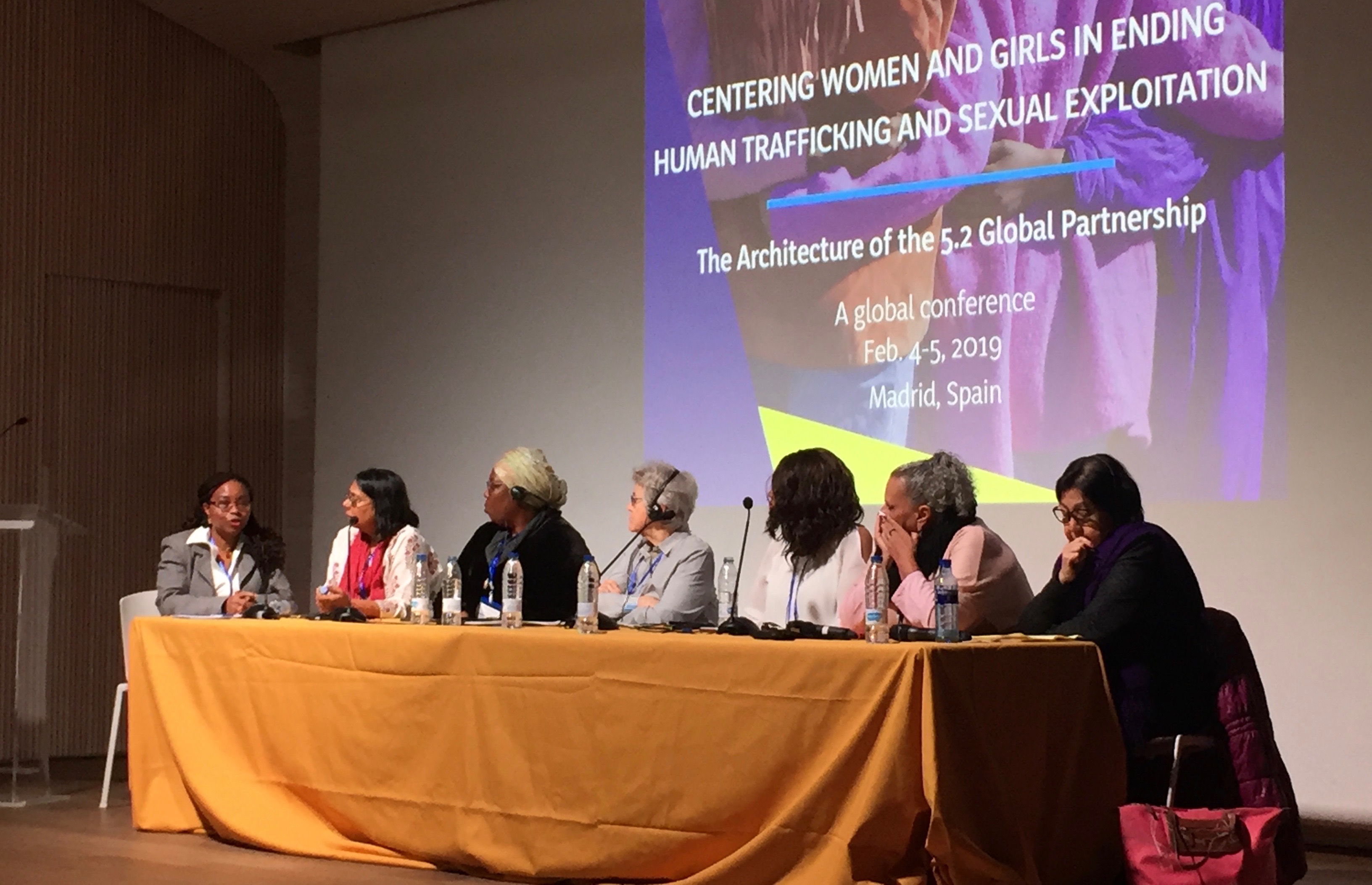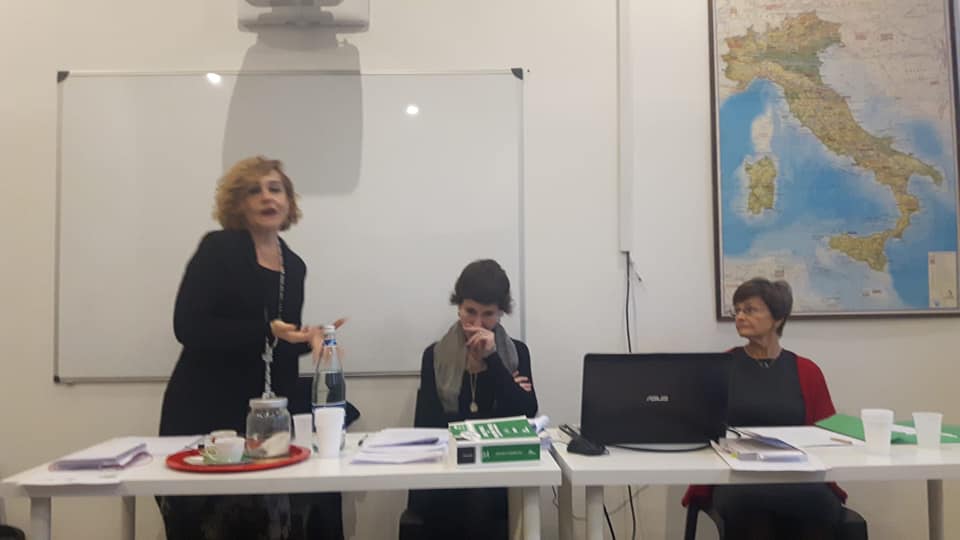In early February Iroko’s Executive Director, Esohe Aghatise, and two members of the team went to Madrid to attend CATW and the Commission for the Investigation of Harms Against Women’s (Comisión Para La Investigación De Malos Tratos A Mujeres, CIMTM) global conference entitled Centering Women and Girls in Ending Trafficking and Sexual Exploitation: The Architecture of the 5.2 Global Partnership. Not only did the conference give invaluable insights into the challenges facing this movement to end trafficking and sexual exploitation and some of the tools and projects in place to tackle them, but it provided an opportunity to come together with an inspiring group of women and men who work every day to protect the rights of women and girls around the world.
The conference consisted of 8 panels of experts, journalists, survivors, activists and many more, across two days, including speakers from all over the world. Among them were CATW’s Board of Directors, who began the conference talking about the successes and challenges they’ve seen over the organisation’s 30 years. Aurora Javate-de Dios highlighted the hypocrisy that many self-proclaimed feminist organisations demonstrate today, citing the example of the scandal surrounding Oxfam staff in Haiti in 2010, where representatives of a global organisation promoting human rights and equality were supporting earthquake victims one day and buying women’s bodies for sexual services the next. Janice Raymond recognised the huge contribution and strength that survivors have brought to this movement over the years. Ruchira Gupta brought forward a theme that continued throughout the conference: the question of language and the powerful role it plays. When asked what she would change given a magic wand, she proposed the removal of the concept of ‘consensual sex’ from our collective vocabulary, and its replacement with ‘welcome sex’. Read More


